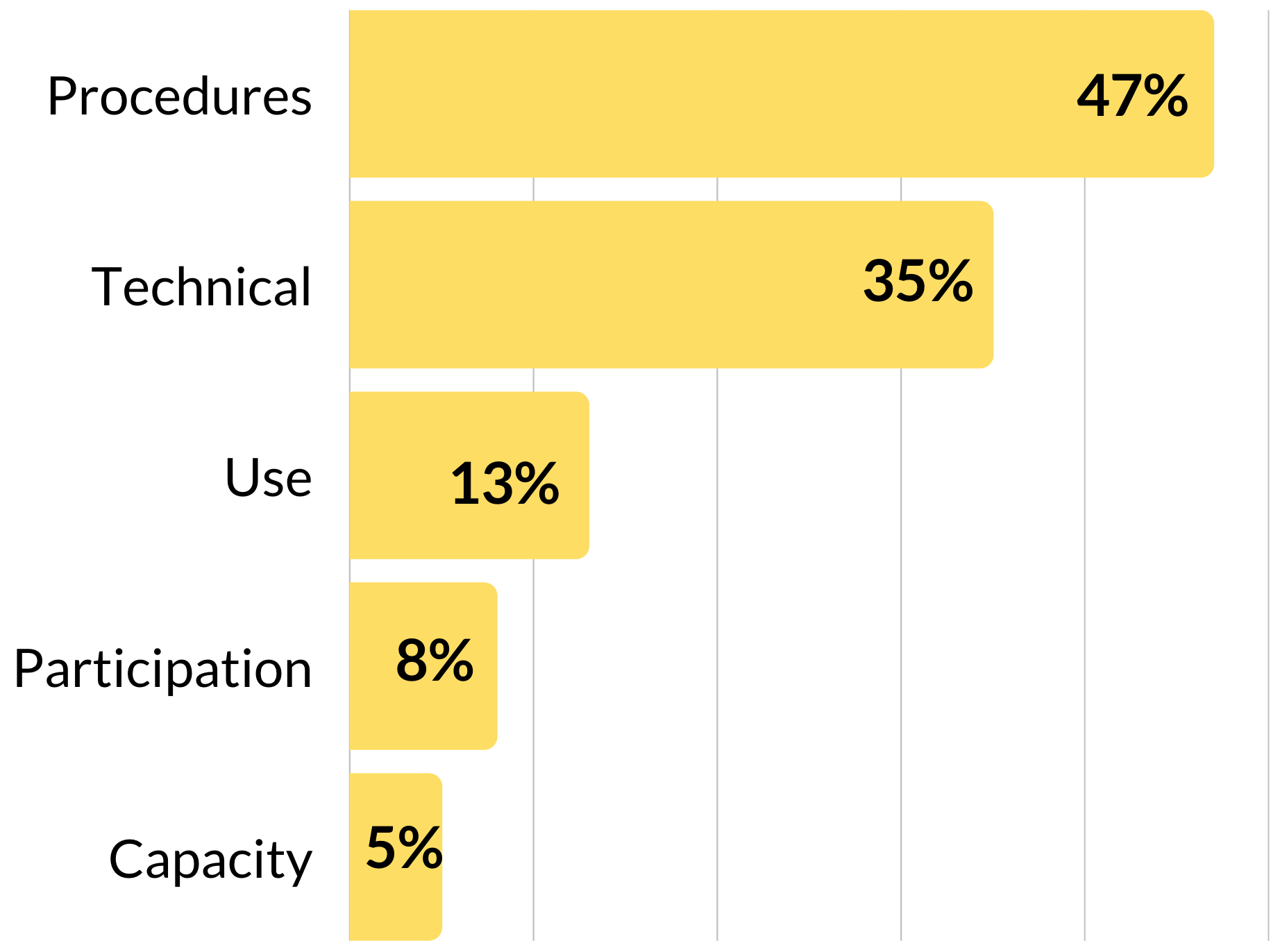Research Findings: Government Evaluation Policies
Why?
The Foundations for Evidence-Based Policymaking Act of 2018 requires agencies to develop evaluation policies to regulate and guide their practice (H.R. 4174). Evaluation policies lay the foundation for virtually every aspect of evaluation practice. Despite their importance to commissioning, planning, implementing, and using evaluations, we know very little about these policies.
What did we study?
To fill this gap in knowledge, a team of research-practitioners from Claremont Graduate University and the University of California, Los Angeles set out to identify existing evaluation policies in the Federal government and learn about their content. Publicly available evaluation policies established between 2012 and 2019 at the agency or sub-agency level were cataloged. We reviewed their content for insights on what they most, and least, frequently include.
Data set
17 US Federal evaluation policies were examined:
| 1. Corporation for National & Community Service | 10. Department of Housing & Urban Development |
| 2. Department of Defense | 11. Department of Labor |
| 3. DoED/Institute of Education Sciences/NCEERA | 12. Department of State |
| 4. DHHS/Administration for Children & Families | 13. GSA/Office of Evaluation Sciences |
| 5. DHHS/Agency for Community Living | 14. Millennium Challenge Corporation |
| 6. DHHS/Centers for Disease Control & Prevention | 15. NASA/Office of STEM Engagement |
| 7. DHHS/Centers for Medicare & Medicaid | 16. U.S. Agency for International Development |
| 8. DHHS/Indian Health Service | 17. USDA/Foreign Agricultural Service/Food Assistance |
| 9. DHHS/Substance Abuse & Mental Health |
Findings
Of 17 US Federal evaluation policies, 47% detailed procedural topics such as who is responsible for evaluation tasks, and procedures for commissioning and monitoring evaluations.
35% of policies covered technical topics such as principles guiding evaluation practice and prescriptions for evaluation practice, including expectations for study designs and methods.
Fewer policies covered how to use evaluation findings (13%), how to build stakeholder engagement (8%), or create evaluation capacity (5%)
Note
Percentages add up to more than 100% because a single policy may cover more than one topic.
Topics found in policies